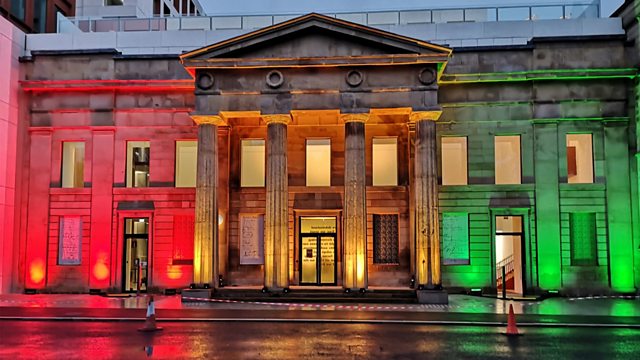Africa United in Manchester
Rosemary Laryea marks the 75th anniversary of the 5th Pan African Congress, held in Manchester, and considers its relevance to the Black Lives Matter movement of today.
Shortly after the end of World War II, a conference was held in Manchester which helped redefine racial equality, identity, and notions of independence within British colonies around the world.
At the time, soldiers were still being de-mobbed, Prisoners of War were returning from the Far East and a new Labour Government was promising to rebuild Britain. But in October 1945, 200 delegates from across Africa, the Caribbean, the United States and Britain came together in the modest surroundings of Chorlton-On-Medlock Town Hall on Grosvenor Street, just south of Manchester city centre.
A week of debates included how African and Caribbean nations could best achieve independence from their colonial masters, what was to be done about enforced child labour and poor wages on the sugar-cane plantations in the Caribbean, and how to deal with the rising mixed race population in Cardiff.
Taking part were some of the most influential black thinkers of the time, including W E B Du Bois, affectionately known as the father of Pan-Africanism and among the delegates were three men who would go onto lead their respective countries to independence - Kwame Nkrumah (Ghana), Jomo Kenyatta (Kenya) and Hastings Banda (Malawi).
βReading the transcripts of the debates, itβs clear that it was a galvanising eventβ, says Rosemary Laryea. βThere are huge similarities between the demands of the delegates in 1945 and the rallying cries of the current global Black Lives Matter movement.β
Presenter: Rosemary Laryea
Producers: Rosemary Laryea and David Prest
A Whistledown production for ΒιΆΉΤΌΕΔ Radio 4
Photo: The facade of the former Chorlton-on-Medlock Town Hall, October 2020 by Michael Gorman
Last on
Broadcast
- Fri 27 Nov 2020 11:00ΒιΆΉΤΌΕΔ Radio 4

